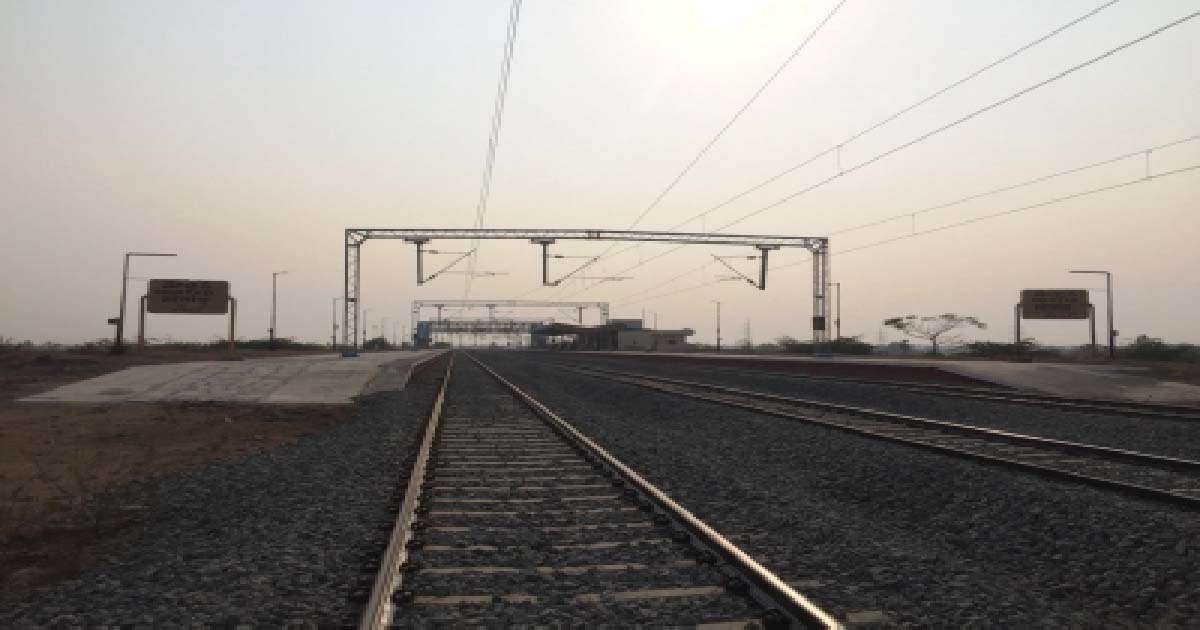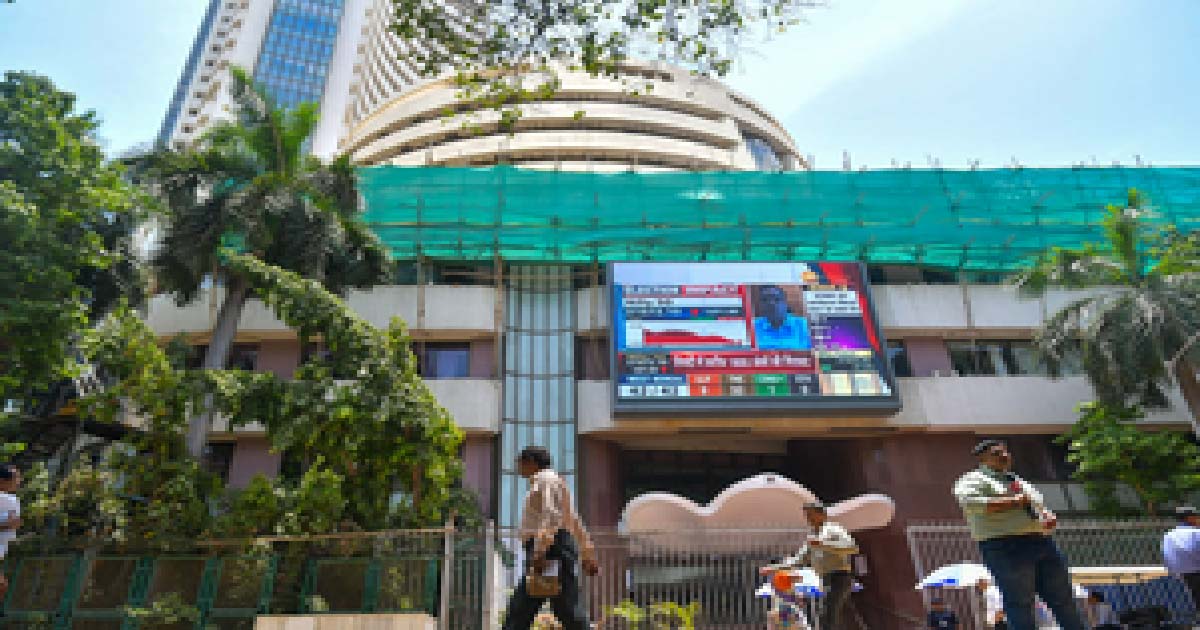Business
BharatPe to ‘claw back’ Ashneer Grover restricted shares, blocks vendors

Leading fintech platform BharatPe on Tuesday said it has initiated necessary action against the company’s former founder Ashneer Grover to “claw back his restricted shares as per the shareholders’ agreement” and will take all steps to enforce its right under the law.
As part of its corporate governance review of the company after the financial irregularities were unearthed during Ashneer and his wife Madhuri Jain Grover’s time, the company found many vendors were involved in malpractices, such as incorrect or inflated invoices, who have been blocked for further business with the company.
“These vendors were also identified during the GST Enquiry. The company has already issued legal notices to these vendors to recover the amount and will be filing civil/criminal cases against them in the coming days,” said BharatPe.
The company has terminated the services of several employees in departments who were directly involved with these blocked vendors.
“If required, the company will be filing criminal cases against some of these employees for the misconduct and act of cheating committed by them against the company,” it added,
In January, the board of BharatPe appointed Alvarez & Marsal (A&M), a global professional services firm and Shardul Amarchand Mangaldas & Co. (SAM) to help the board and management with its governance review and PwC to determine wilful misconduct and gross negligence by a former founder.
BharatPe said that a new code of conduct will be applicable to senior management and employees and has now been implemented.
“A new and comprehensive Vendor Procurement Policy has also been developed to ensure that a robust mechanism is in place for on-boarding and engaging with vendors and mitigate any risk of employees indulging in suspicious transactions to enrich themselves,” said the company.
A full-time CHRO and an interim CFO have joined the company, said the company, and it is in the process of finalising the candidate for the role of CFO.
Mazars India, a global audit firm, has been appointed by the company as an internal auditor.
Grover, along with his wife Madhuri Jain Grover, has been stripped of all company titles over alleged “extensive misappropriation of company funds” and using “company expense accounts” to “enrich themselves and fund their lavish lifestyles”.
Ashneer Grover, co-founder and former Managing Director of fintech platform BharatPe, recently said that he is planning to start his own venture without seeking funds from the investors.
Business
38 Railways projects worth Rs 89,780 crore sanctioned in Maharashtra: Centre

New Delhi, Dec 20: A total of 38 railway projects (11 new lines, 2 gauge conversion and 25 doubling) of a total length of 5,098 kms and costing Rs 89,780 crore have been sanctioned in Maharashtra (as on April 1, 2025), the government said on Saturday.
During the last three fiscals — 2022-23, 2023-24, 2024-25 and the current financial year 2025-26 — 98 surveys (29 New Line, 2 Gauge Conversion and 67 Doubling) of total length 8,603 km falling fully/partly in the state of Maharashtra, have been sanctioned, it said.
“Further, construction works on the flagship High-Speed Bullet Train project have gathered momentum in Maharashtra. Now 100 per cent of land acquisition has been completed. Works on bridges, aqueducts, etc. have been taken up,” the Railways Ministry said in a statement.
In addition, platform extension work at 34 stations to accommodate 15-car EMUs has been taken up.
To improve the capacity of the rail network in the Mumbai suburban area, the Mumbai Urban Transport Project (MUTP)-II costing Rs 8,087 crore, MUTP-III costing Rs 10,947 crore, and MUTP-IIIA costing Rs 33,690 crore have been sanctioned.
To enhance passenger carrying capacity, 238 rakes of 12 cars each with doors have been sanctioned under MUTP-III and IIIA at a cost of Rs 19,293 crore. The process for the procurement of these rakes has been taken up.
With Western DFC also passing through Maharashtra, as about 178 route km of it or about 12 per cent of the overall route length, falling in the state, the ministry said that “about 76 km of this project from New Gholvad to New Vaitarna in Maharashtra has already been commissioned. Balance works have been taken up. Connectivity of WDFC to JNPT will boost the capacity to handle cargo and container traffic from the port to Delhi NCR”.
Presently, about 120 originating Mail/Express trains and about 3,200 suburban trains are handled daily in the Mumbai area.
Business
Indian indices end week in bullish tone over positive global cues

Mumbai, Dec 20: Indian equity benchmarks closed on a strong note this week, snapping a four-day losing streak amid positive global cues stemming from US inflation data.
The market ended the week in a bullish tone with Nifty surging 0.18 per cent during the week and 0.58 per cent on the last trading day to 25,966, after a softer US CPI print boosted expectations of a milder Fed stance.
At close, the Sensex was up 447.55 points or 0.53 per cent at 84,929.
Indian equities were traded in a cautious tone for most of the week, weighed down by persistent FII outflows, rupee depreciation, and heightened global uncertainties.
Further, early sessions also saw pressure from rising Japanese bond yields and expectations of Bank of Japan (BoJ) tightening, which amplified risk-off sentiment across emerging markets.
Bargain hunting and lower crude prices helped large caps drive a late rebound, trimming most of the week’s losses, market watchers said.
Broader indices also rose marginally during the week, with the Nifty Midcap100 up 0.04 per cent, while Nifty Smallcap100 was unchanged during the week. It gained 1.34 per cent at the close.
On the sectoral front, all sectors traded with a positive bias. Major contributions came from Nifty Realty, Auto, Healthcare, and Chemicals, while other sectors also posted modest gains.
Nifty has 26,200-26,300 as stiff resistance levels while 25,700–25,800 levels will act as support zone, they added.
Analysts said markets will likely maintain a cautiously positive bias in near future but remain highly sensitive to global cues.
Key drivers going forward include comments from the global central banks for the 2026 policy trajectory. While sentiment remains constructive, near-term volatility may persist amid uncertainty over trade deal timelines and the Indian rupee stability, they added.
Business
Nifty to touch 29,094 in 12 months supported by durable earnings, strong macro backdrop

New Delhi, Dec 19: India’s benchmark index Nifty is expected to touch 29,094 in one year based on long‑term valuation averages and earnings durability, a report said on Friday.
Wealth management firm PL Wealth said in the report that India enters the end of 2025 from a position of relative macro strength with record‑low inflation, a dovish monetary stance, resilient domestic demand and improved corporate earnings visibility.
“In the near term, large-cap stocks remain preferred due to their earnings stability and strong balance sheets, while selective exposure to high-quality mid-cap names is being added as visibility improves,” the wealth management firm cited its strategy.
Over the next 6 to 24 months, the earnings cycle is expected to broaden across consumption, financials, capex-linked sectors and select industrials, supported by benign inflation, lower interest rates and sustained domestic liquidity.
“India’s current macro configuration is among the most constructive we have seen in over a decade,” said Inderbir Singh Jolly, CEO, PL Wealth Management.
While global uncertainties will continue to create short-term volatility, India’s structural strengths—policy reform, financialisaton of savings and improving corporate balance sheets—position it well for sustained long-term growth, Inderbir added.
RBI’s 25 basis‑point cut to a 5.25 per cent policy repo rate lowered its CPI inflation projections and upgraded GDP growth estimates, signalling confidence in the sustainability of domestic demand, the report said.
The firm also noted FY26 GDP growth projection of 7.3 per cent underpinned by robust infrastructure spending, resilient consumption and key policy measures such as GST rationalisation and income-tax cuts.
The FY26 September quarter earnings season delivered broad-based strength, with several sectors—including hospitals, capital goods, cement, electronics manufacturing services, ports, NBFCs and telecom—reporting double-digit growth in EBITDA and profits.
The firm noted that Nifty earnings per share estimates for FY26–FY28 imply an earnings CAGR of nearly 14 per cent. Domestic institutional investors have anchored markets with record net inflows of over Rs 6.8 trillion year‑to‑date.
-

 Crime3 years ago
Crime3 years agoClass 10 student jumps to death in Jaipur
-

 Maharashtra1 year ago
Maharashtra1 year agoMumbai Local Train Update: Central Railway’s New Timetable Comes Into Effect; Check Full List Of Revised Timings & Stations
-

 Maharashtra1 year ago
Maharashtra1 year agoMumbai To Go Toll-Free Tonight! Maharashtra Govt Announces Complete Toll Waiver For Light Motor Vehicles At All 5 Entry Points Of City
-

 Maharashtra1 year ago
Maharashtra1 year agoFalse photo of Imtiaz Jaleel’s rally, exposing the fooling conspiracy
-

 National News1 year ago
National News1 year agoMinistry of Railways rolls out Special Drive 4.0 with focus on digitisation, cleanliness, inclusiveness and grievance redressal
-

 Maharashtra1 year ago
Maharashtra1 year agoMaharashtra Elections 2024: Mumbai Metro & BEST Services Extended Till Midnight On Voting Day
-

 National News1 year ago
National News1 year agoJ&K: 4 Jawans Killed, 28 Injured After Bus Carrying BSF Personnel For Poll Duty Falls Into Gorge In Budgam; Terrifying Visuals Surface
-

 Crime1 year ago
Crime1 year agoBaba Siddique Murder: Mumbai Police Unable To Get Lawrence Bishnoi Custody Due To Home Ministry Order, Says Report


















